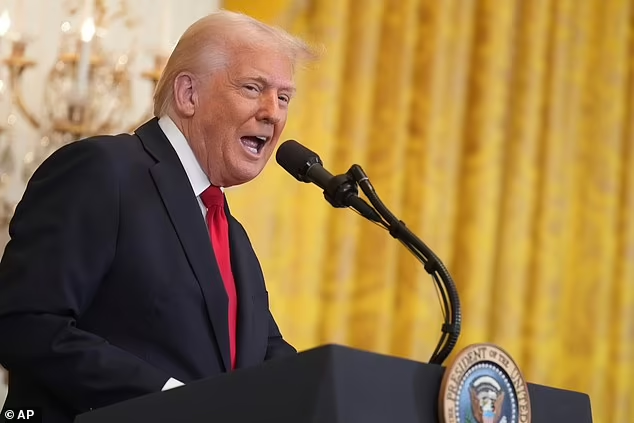WASHINGTON, D.C. – President Donald Trump has announced a 25% tariff on all foreign-made cars, a move aimed at boosting U.S. auto manufacturing and reshaping the automotive trade landscape.

“We’re implementing a 25% tariff on all cars not made in the United States,” Trump declared from the Oval Office. “Business is coming back to the U.S.”
The new vehicle import tax is set to take effect on April 2 and will impact both allied and rival nations. Trump characterized the measure as “modest” but necessary to stimulate domestic car production and economic growth.
“This will lead to tremendous expansion in the automobile industry,” Trump said.
While the administration argues that the policy will revitalize American car manufacturing, industry analysts predict significant price increases. The Anderson Economic Group estimates that the cost of vehicles could rise between $3,500 and $12,000 per car.
Domestic car production is also expected to feel the impact, as many U.S.-assembled vehicles rely on imported parts. Models like the Chevy Blazer, built in Mexico, and the Honda HR-V, produced outside the U.S., are among those that could see cost surges.
Following the tariff announcement, financial markets reacted with declines, with the S&P 500 dropping around 1% and the NASDAQ falling by 2%. Trump dismissed concerns over the market reaction, emphasizing job creation as his administration’s focus.
“I didn’t see that,” Trump said. “I want to see jobs. That will take care of itself.”
Commerce Secretary Howard Lutnick indicated that the implementation date could shift to April 3, allowing room for possible negotiations. However, Trump insisted the decision was final.
When asked about the impact on Tesla, Trump refrained from specific comments but praised the company’s U.S. manufacturing presence. Tesla CEO Elon Musk, a White House advisor, has not publicly weighed in on the tariff’s effect on the electric carmaker.
General Motors, Ford, and Stellantis had previously lobbied for exemptions on Canadian and Mexican imports, leading to Trump delaying those specific tariffs earlier this month.
Canadian Prime Minister Mark Carney criticized the measure, calling it harmful to Canadian auto workers. The White House has not clarified whether any countries will receive exemptions.
“If they have factories here, they’re thrilled. If they don’t, they’ll have to start building them,” Trump said.
The tariff comes after Trump imposed a similar 25% tax on steel and aluminum imports in February. The administration projects revenue from the auto tariffs could range between $600 billion and $1 trillion in the short term.
In a show of support for American-made vehicles, Trump recently purchased a Tesla Model S, displaying the car on the White House South Lawn. He reviewed the vehicle alongside Musk but refrained from test-driving it due to Secret Service protocols.
“I’ll pay by personal check. I don’t want a discount,” Trump said.
Musk confirmed Tesla would accept the check, saying, “His credit’s good.”
During a Newsmax interview, Trump suggested that left-wing billionaires were behind criticisms of Tesla, aligning their opposition with broader attacks on his policies.
The 25% foreign car tariff marks a significant shift in U.S. automotive trade policy, with long-term effects on vehicle pricing, manufacturing, and global trade relationships still unfolding.


